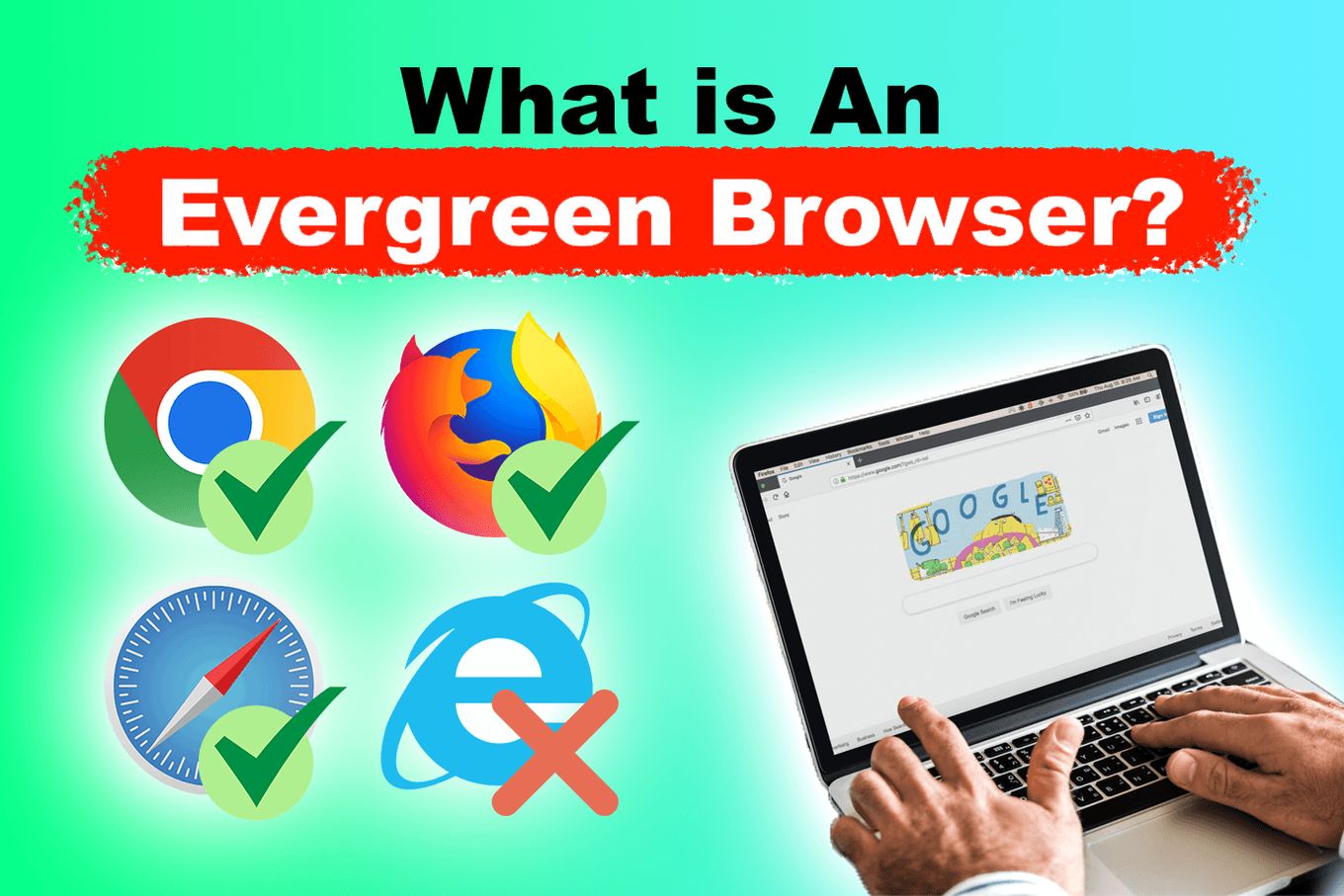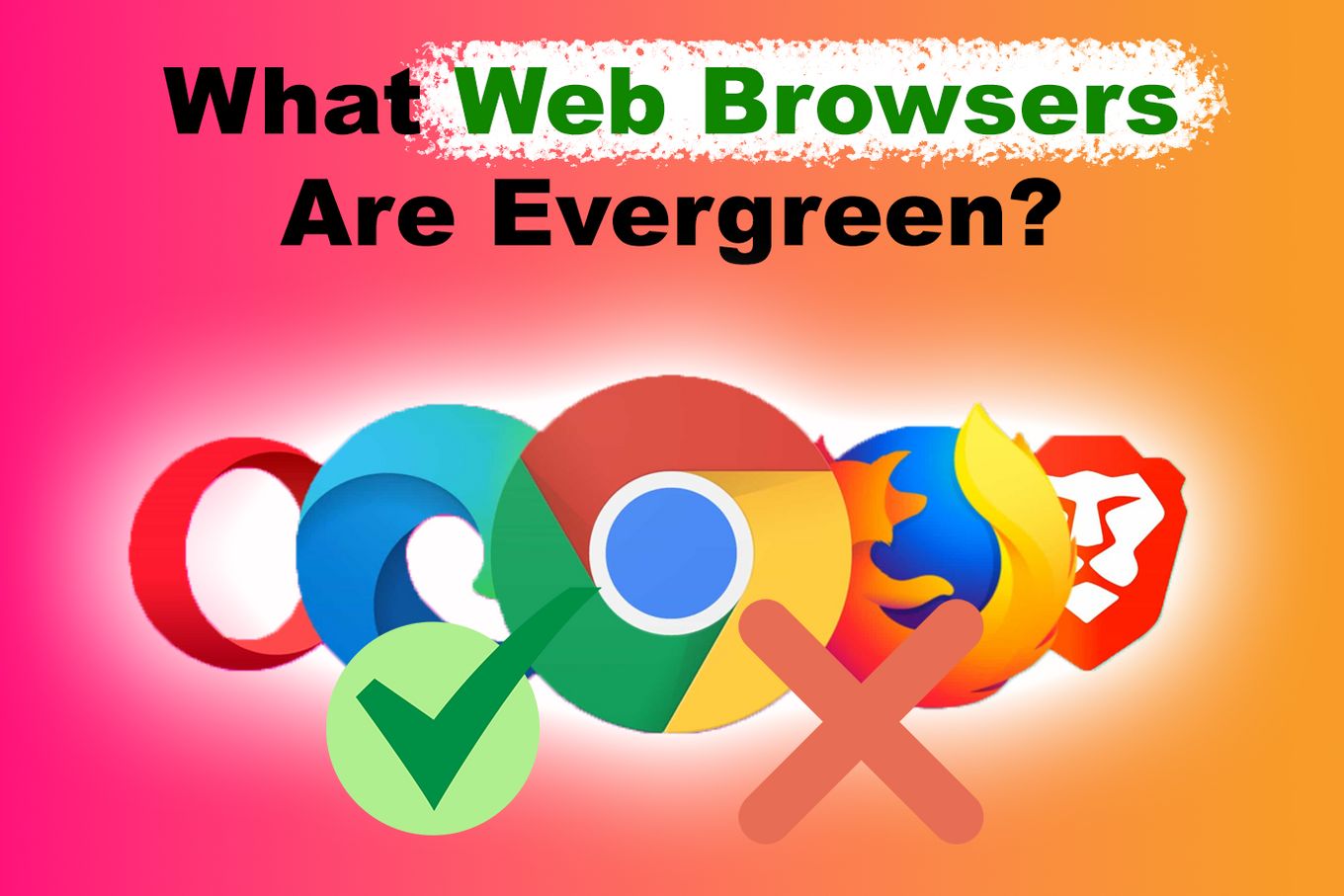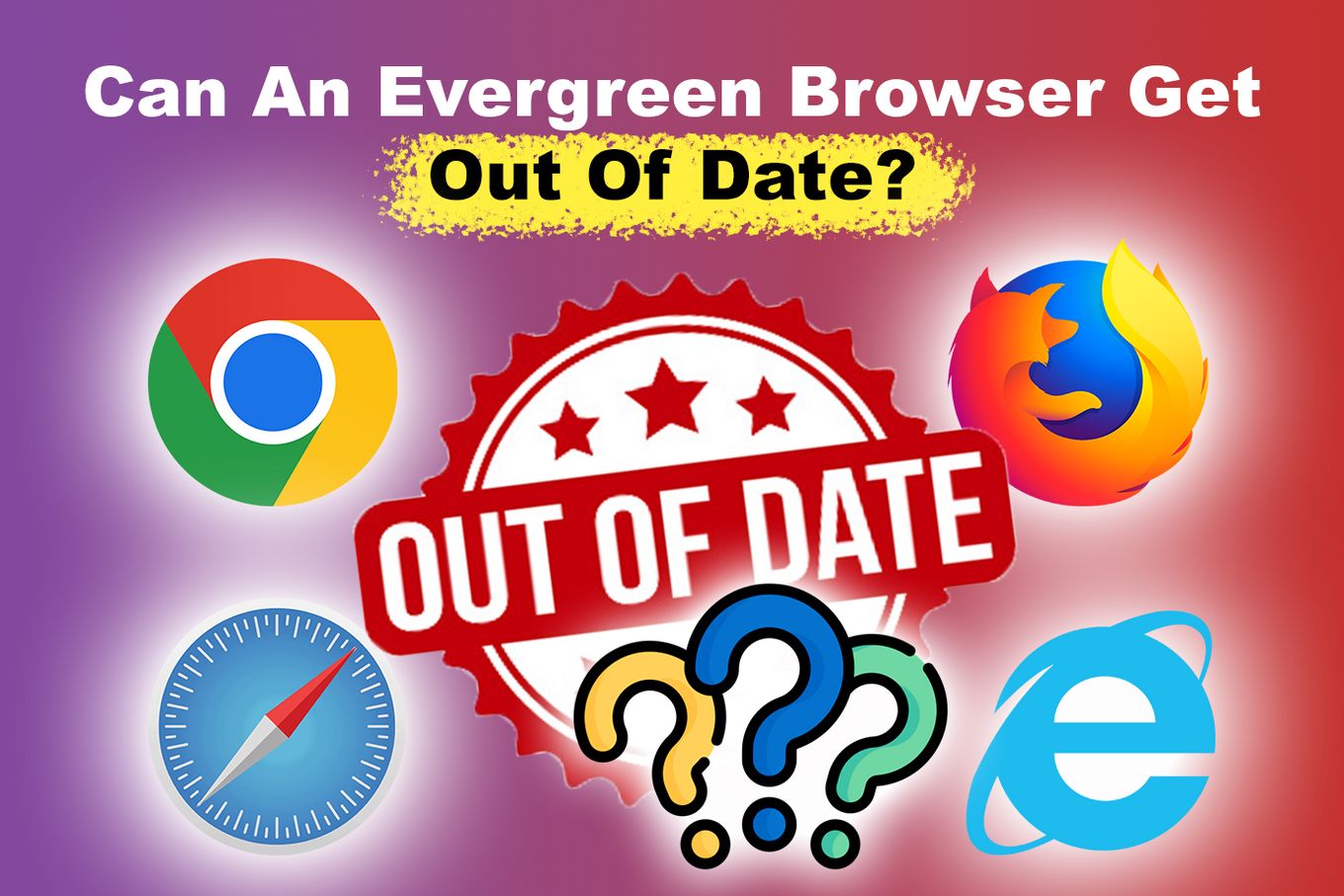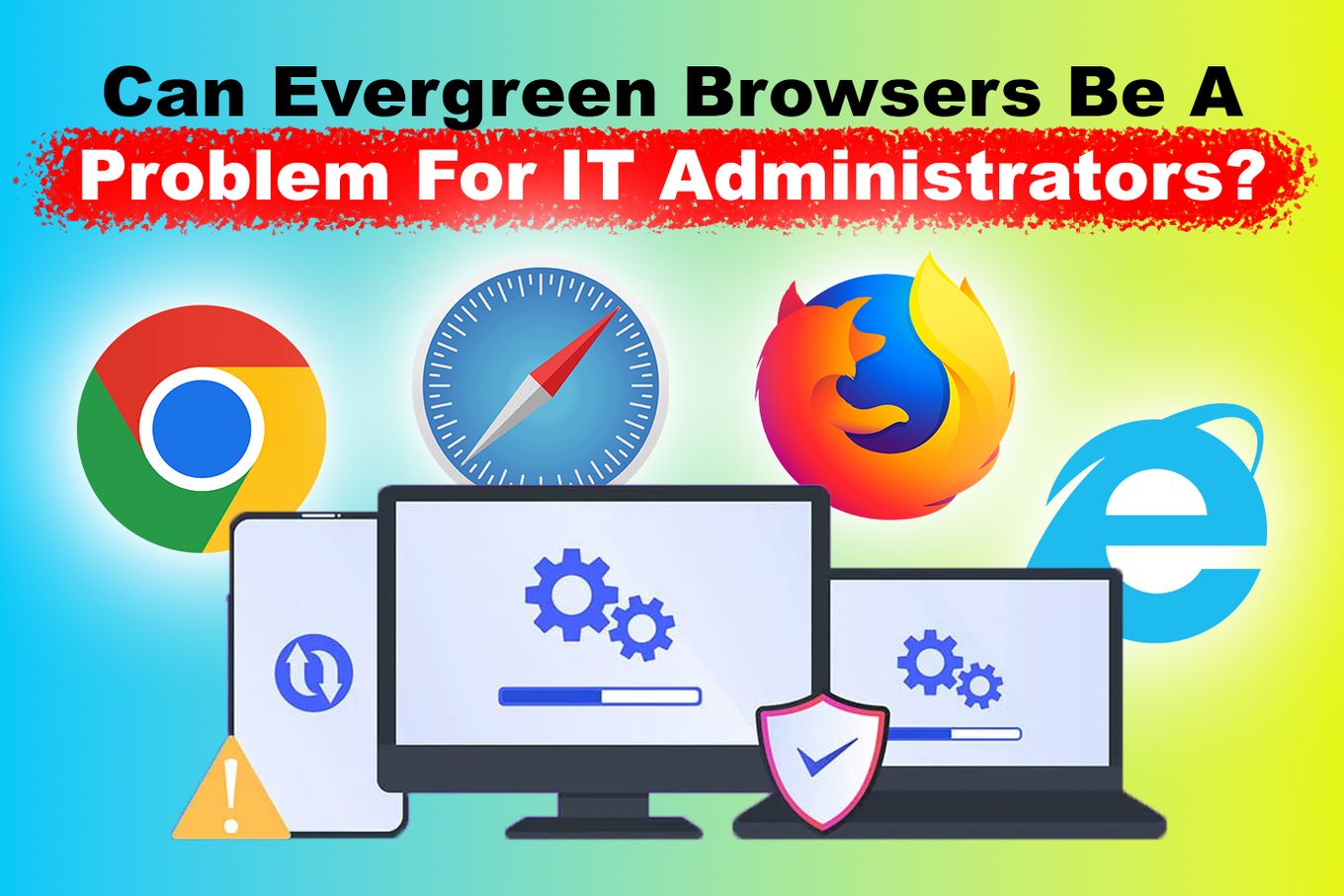Many have asked what makes an evergreen browser special. As we shall see in this article, these browsers strive to get the newest features to users once they are released from the manufacturer’s website.
Let’s see in-depth what is an evergreen browser, when the browser gets updated, and a list of the most common evergreen browsers.
What is An Evergreen Browser?

An evergreen browser is a web browser that automatically updates itself to the latest version in the background. Such browsers will always be up to date if you are connected to a stable internet connection. The browsers detect new updates once released on the browser’s manufacturer’s website.
The code required to add new features and fix bugs is downloaded and installed automatically. A browser like this means all flaws and vulnerabilities discovered are patched up as soon as the update is released, which keeps you safe online.
Before the invention of these browsers, you had to manually download and install the update from the manufacturer’s website. You had to use a CD or floppy disk before that.
Thanks to these browsers, you don’t have to install updates to your browser application manually. Examples of evergreen browsers include Google Chrome, Mozilla Firefox, and Microsoft Edge.
When Exactly Does An Evergreen Browser Get Updated?

An evergreen browser gets updated upon relaunching the browser or restarting the device. Sometimes, the browser may also update in the background and prompt the user for a restart to finish updating the application. Of course, you can also force the update manually.
The frequency of the updates depends on each browser. For example, Google Chrome and Firefox have different update specifications.
Google Chrome Update Specifications
Google Chrome browser updates are made in the background when closed. Users may not even notice that their browser has been updated, as the process is automatic and silent.
If an update is due for download and installation, Chrome will use small colored notifications (green, orange, and red) to prompt the user to make the necessary updates.
Firefox Update Specifications
Firefox browser updates automatically by default, just like Google Chrome. However, if you installed Firefox through the Microsoft Store, you will have to get the updates from there.
If your Firefox is from Mozilla, you can navigate to the menu button at the right side of the toolbar, click “Help,” and select “About Firefox.” to update the browser.
Did you know that Firefox is among the browsers that use the least RAM?
What Web Browsers Are Evergreen?

Here are some of the most popular evergreen browsers:
- Chrome
- Chromium
- Mozilla Firefox
- Microsoft Edge
- Opera
- Brave
- Vivaldi
As you can see, the most popular browsers are almost all evergreen. Google Chrome evergreen browser is the most popular browser used by many.
The Microsoft Edge evergreen web browser has also gained popularity because of its lightweight and speed compared to Google Chrome.
If you want one of these browsers, you just have to download them from their official websites. Don’t look for evergreen web browsers in the chrome web store. You won’t find them there.
Safari Is Not an Evergreen Browser
Apple Safari is the only popular browser that is not evergreen.
Safari, while it automatically downloads updates, it awkwardly requires users to access the system-wide update section of the macOS operating system to download and install them.
Can An Evergreen Browser Get Out Of Date?

Yes, although it is not common. By default, evergreen browsers will always be up-to-date when opened. However, they can miss updates due to not restarting the computer, not restarting the browser, not having administrator rights, or having an old computer or operating system.
You will usually restart your computer or your browser frequently. However, you may have an old computer and that’s when the main problems appear with your browser updates. There are also other reasons:
1. Out of Date Due To Distribution Issues
Although browser developers can send updates directly to users, occasionally, a third party intervenes and manages the flow of updates.
This applies if you use Linux and have downloaded your browser from the distribution’s software repository.
It also applies if you work in a setting where the network administrator decides when updates are deployed.
2. Out of Date Due To Permissions Issues
Installing the browser updates may require administrator privileges.
Even if you can download the updates, you can only apply them if you are the computer’s administrator, which may not be the case for all users (especially in enterprise/business networks)
For those users, the evergreen browser will be out of date until the computer administrator follows the procedures required by the network administrator to allow the installation of the updates.
3. Out of Date Due To Unsupported Platform
One of the main reason users of evergreen browsers lag in the case of updates is due to unsupported platforms.
Users of Macs typically experience this issue, but Windows and Linux users can also be affected if their operating systems are not up-to-date.
If your OS is old, your browser may encounter incompatibility problems with updating to the latest version and it will get out of date.
Can Evergreen Browsers Be A Problem For IT Administrators?

Evergreen browsers can be a problem for IT administrators sometimes. Corporate IT organizations may want to suspend browser updates for various reasons, including:
- Regulations. There could be a requirement to test authorized changes before applying them to hundreds or maybe thousands of PCs, or a problem that prevents internal programs from running.
- Misinformation. Other users may stop automatically updating their browsers on the incorrect assumption that they would be allowed to use Adobe Flash (and many other period-limited apps) after it has exhausted its usage period.
- Administration purposes. Some IT administrators who are used to older versions may find the new features overwhelming and decide to stay with outdated browsers by disabling auto-updates for easier administration.
Evergreen Browsers In A Nutshell
The concept of evergreen browsers is one that developers have enjoyed. On the other hand, users don’t need to worry about their browsers not being up to date, as downloading and installing updates occur in the background when the browser is closed.
The only downside of these browsers is that some of the latest features may need to be compatible with the working environment of some IT administrators.
They will forego the automatic updates and stay on the older versions, which are compatible with their other internal applications.
Nonetheless, evergreen browsers are the way to go, as manufacturers constantly provide bug fixes and features that make your browsing experience worthwhile and enjoyable.
![9+ Fastest Web Browsers For Mac [Reviewed & Ranked] fastest web browser mac share](https://alvarotrigo.com/blog/wp-content/uploads/2023/08/fastest-web-browser-mac-share-300x150.png)
![13 Unblocked Web Browsers [Access Blocked Sites!] unblocked-web-browsers](https://alvarotrigo.com/blog/wp-content/uploads/2025/01/unblocked-web-browsers-300x200.jpg)
![16 Best Chromium Browsers 2024 [Ranked & Reviewed] best chromium browsers share](https://alvarotrigo.com/blog/wp-content/uploads/2023/08/best-chromium-browsers-share-300x150.png)
![Web Browser on Samsung Smart TV [All You Need to Know] web browser samsung smart tv share](https://alvarotrigo.com/blog/wp-content/uploads/2023/08/web-browser-samsung-smart-tv-share-300x150.png)
![13+ Best Database Software For Mac [Reviewed & Ranked] mac database software share](https://alvarotrigo.com/blog/wp-content/uploads/2023/08/mac-database-software-share-300x150.png)
![13+ Best Text Browsers [Reviewed & Ranked] text browsing share](https://alvarotrigo.com/blog/wp-content/uploads/2023/08/text-browsing-share-300x150.png)